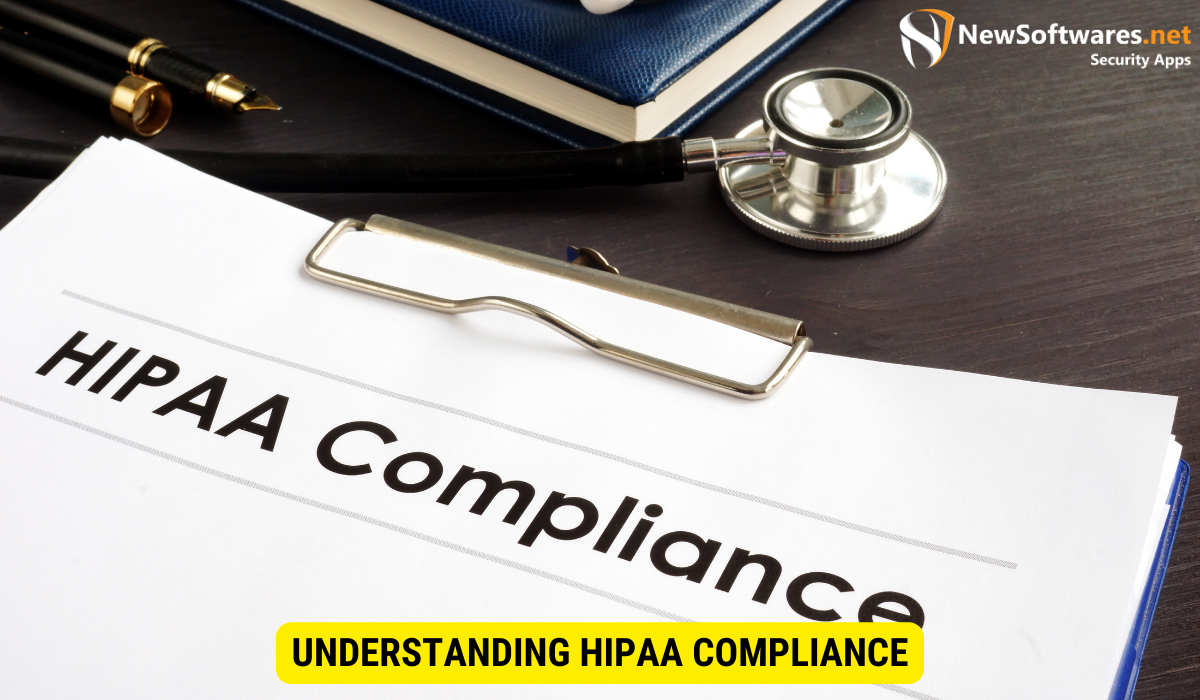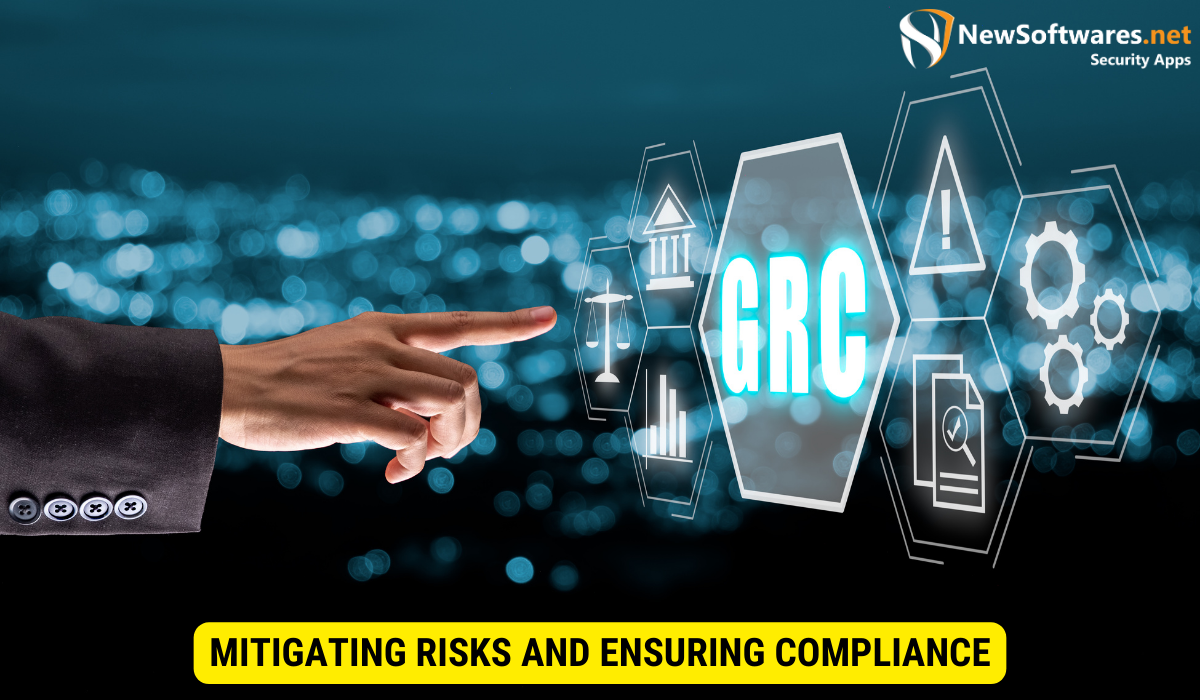The classification of the theft of encrypted data as a breach under HIPAA compliance depends on various factors, including encryption strength and the integrity of encryption key.
In today’s digital age, data security is a top concern for organizations across various industries, especially in the healthcare sector. Shielding sensitive patient information is not only a legal requirement but also a moral obligation. The Health Insurance Portability & Accountability Act sets forth guidelines and standards that healthcare providers and other covered entities must adhere to to ensure patient data privacy and security. One question in this context is whether the theft of encrypted data is considered a breach under HIPAA compliance. Together, we will delve into the intricacies of HIPAA compliance, the concept of data breach, the role of encryption in data protection, and the implications of theft of encrypted data.
Understanding HIPAA Compliance

Before we explore the theft of encrypted data and its implications under HIPAA compliance, it’s important to clearly understand what HIPAA compliance entails. HIPAA, enacted in 1996, aims to safeguard patient health information’s confidentiality, integrity, and availability (PHI). HIPAA compliance is a comprehensive framework that covers various aspects of data security, including administrative, physical and technical safeguard, as well as organizational requirements.
The Basics of HIPAA Compliance
At its core, HIPAA compliance is about protecting patient privacy and ensuring data security. Covered entities, for example healthcare providers, health plans, and healthcare clearinghouses, must implement policies, procedures, and technical measures to safeguard PHI. This includes conducting risk assessments, implementing access controls, training employees, and establishing incident response plans.
Key Provisions of HIPAA Compliance
HIPAA compliance consists of several key provisions that organizations must adhere to. These provisions include the Privacy Rule, which governs the permissible uses & disclosures of PHI; the Security Rule, which outlines the demands for protecting electronic PHI (ePHI); and the Breach Notification Rule, which mandate the reporting of data breaches to affected persons, the Department of Health and Human Services (HHS), and, in some cases, the media.
The Concept of Data Breach in HIPAA
Now, let’s explore the concept of a data breach within the context of HIPAA compliance. A data breach is the illegal access, use, or disclosure of PHI violating HIPAA rules. It’s crucial to distinguish between a breach and an incident. Not all incidents involving PHI constitute a breach. An incident becomes a breach only if it meets the specific criteria outlined in the Breach Notification Rule. The criteria include the nature & extent of the PHI involved. This unauthorized person accessed or obtained the PHI, whether the PHI was acquired or viewed, and the risk of compromise to the PHI.
Defining a Data Breach
Under HIPAA, a breach occurs when there has been an acquisition, access, use, or exposé of PHI in a manner not allowed by the Privacy Rule, which compromise the safety or privacy of the PHI. Stolen unencrypted PHI immediately qualifies as a breach. However, the situation is more nuanced when it comes to encrypted data.
Potential Consequences of a Data Breach
A data breach can have harsh consequences for both patients and healthcare organizations. Patients may experience identity theft, financial losses, and reputational damage. On the other hand, healthcare organizations may face legal penalties, financial repercussions, loss of trust, and damage to their reputation. Notifying affected individuals and regulatory authorities, conducting investigations, offering credit monitoring services, and implementing corrective actions are some of the steps organizations must undertake in the event of a data breach.
The Role of Encryption in Data Protection
Encryption plays a vital role in shielding sensitive data, including PHI. It involves converting plaintext data into a coded form that can only be decrypted by certified parties with the appropriate decryption key. The use of encryption helps to protect PHI from illegal access, both in transit and at rest.
How Encryption Works?
Encryption employs advanced algorithms to scramble the data and render it unreadable without the decryption key. Encryption involves converting the data into ciphertext using a mathematical encryption algorithm and a unique encryption key. Only authorized individuals or systems with the correct decryption key can convert the ciphertext into readable plaintext.
Importance of Encryption in Healthcare Data
Encrypting healthcare data, including PHI, adds a layer of security. It ensures that even if malicious actors gain unauthorized access to the data, they cannot decipher the information without the encryption key. Encryption is considered a critical safeguard to protect against data breaches and maintain sensitive information’s confidentiality, integrity, and availability.
Theft of Encrypted Data: Is it a Breach?
Now we come to the question: Is the theft of encrypted data considered a breach under HIPAA compliance? The answer depends on several factors, including the strength of the encryption and the circumstances surrounding the theft.
Analyzing the Theft of Encrypted Data
If encrypted data is stolen, it may not automatically be considered a breach if the encryption is strong and there is no evidence to suggest that the encryption key was compromised. However, it’s important to note that encryption alone is insufficient to guarantee data security. Organizations must implement appropriate technical and organizational controls, such as access controls, intrusion detection systems, and encryption key management, to complement encryption efforts.
Legal Interpretations of Encrypted Data Theft
The legal interpretations of encrypted data theft vary. While some courts and regulatory bodies may consider the theft of encrypted data to be a breach, others may not, provided that the encryption was appropriately implemented and the encryption key was not compromised. Organizations should consult legal counsel to understand the specific legal implications of encrypted data theft under HIPAA compliance.
Mitigating Risks and Ensuring Compliance

To mitigate the threats associated with the theft of encrypted data and ensure HIPAA compliance, healthcare organizations, and covered entities must adopt a proactive approach to data security. Implementing best practices and robust security measures is crucial in safeguarding sensitive patient information.
Best Practices for Data Security in Healthcare
Implementing a comprehensive data security framework is essential for maintaining HIPAA compliance. Best practices for data security in healthcare include conducting thorough risk assessments, implementing access controls, utilizing encryption and strong authentication mechanisms, maintaining proper audit logs, training employees on data security, regularly monitoring systems for security breaches, and having an incident response plan.
Steps to Maintain HIPAA Compliance
To guarantee ongoing compliance with HIPAA regulations, organizations should frequently review and update their policies and procedures, conduct employee training and awareness programs, engage in third-party audits and assessments, monitor compliance with the Security Rule, and incorporate the latest cybersecurity technologies and practices into their infrastructure.
Key Takeaways
- The theft of encrypted data may or may not be considered a breach under HIPAA compliance, depending on factors such as the strength of the encryption and whether the encryption key was compromised.
- HIPAA compliance requires healthcare organizations and covered entities to protect patient health information through administrative, physical, and technical safeguards.
- Data breaches can have harsh consequences for patients and healthcare organizations, including legal penalties and reputational damage.
- Encryption protects sensitive data, including PHI, from unauthorized access.
- In addition to encryption, organizations must implement other technical and organizational controls to ensure data security and maintain HIPAA compliance.
FAQs
Is encryption mandatory under HIPAA compliance?
While HIPAA does not explicitly mandate encryption, it is strongly recommended as a finest practice to protect sensitive patient information.
If encrypted data is stolen, must I report it as a breach?
The reporting requirements for encrypted data theft vary and depend on factors such as the strength of the encryption and the circumstances surrounding the theft. It’s advisable to consult legal counsel to determine the specific reporting obligations in your jurisdiction.
Can encryption alone guarantee the security of healthcare data?
Encryption is an essential security measure but should complement other technical and organizational controls, such as access controls, intrusion detection systems, and robust encryption key management, to ensure comprehensive data protection.
What are some common signs of a data breach in healthcare?
Common signs of a data breach in healthcare include unusual network activity, unauthorized access to sensitive information, unexplained data loss, and suspicious behavior by employees or third-party vendors.
What should I do in the event of a data breach?
In the event of a data breach, it is crucial to promptly respond by following your organization’s incident response plan, containing the breach, notifying affected individuals, cooperating with regulatory authorities, conducting an investigation, and implementing remedial measures to prevent future breaches.
Conclusion
The theft of encrypted data raises complex questions regarding its classification as a breach under HIPAA compliance. While encrypted data theft may not automatically qualify as a breach, organizations must proactively protect patient information by implementing strong encryption, robust security measures, and comprehensive data security frameworks. Compliance with HIPAA regulations is an ongoing process that requires continuous risk assessments, regular training, and adherence to best practices. By prioritizing data security and staying vigilant against the evolving threat landscape, healthcare organizations can mitigate risks and protect patient privacy in an ever-changing digital world.
